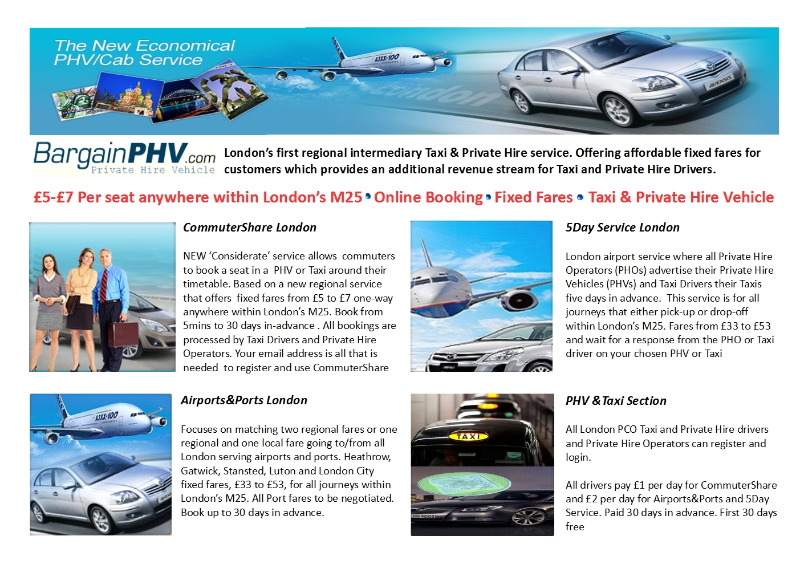


Taxi or PHV licences that have expired or are due to expire between March 23 and June 30 will also remain licensed for a period of six months pending the full resumption of vehicle inspections and a decision by TfL on the grant of a new licence.
#LONDON PRIVATE HIRE VEHICLE DRIVERS#
TfL also confirmed that taxis would be included in the recent government announcement to extend MOTs by six months, meaning drivers can continue to work without an NSL or MOT test. The decision was welcomed by Unite the Union, which said in a statement: “This will help considerably as taxi and PHV drivers are really struggling right now.” In Edinburgh, the city council has decided to defer licensing fees for three months. Transport for London issued a Notice to the industries following Government guidance on the status of drivers, confirmation of a six-month exemption from MOT testing and other areas, including the six-month extension of vehicle licensing for private hire vehicles and hackney carriages. It would have been unlawful, had they done so.”Īn accusation, that TfL had in fact deliberately achieved a cross-subsidy while denying it in its words, was not justified, Mr Justice Ouseley added.Taxi and private hire vehicle licenses in London and Edinburgh are being granted extensions upon expiry during the Coronavirus crisis, with other councils expected to follow suit. “If the Mayor did intend to convey that operators would pay a fee for costs which properly belonged to taxis or drivers or vehicles, the TfL officers have not in fact carried through any such intention. It has not been shown to be wrong on its face, and on the analysis which I have had, I am not persuaded that there is any unlawful subsidy. On the cross-subsidy point, the judge said: “What TfL have done is to produce a reasonable method, with some evidence, to which reasoned judgment has been applied. “Accordingly, there was no unlawful failure to disclose the information about how that was worked out, in order for consultees to be sufficiently informed about the proposal actually under consultation in order to make an informed response.” On ground 1 he said: “I have come to the conclusion that the true scope of the consultation, intended by TfL, did not cover the way in which £38m was the costs of licensing regime attributed to operators, and was confined to the structure whereby operators' fees would raise that sum. Mr Justice Ouseley rejected the challenge. It was not at issue but that a cross-subsidy would have been unlawful.

The consultation process was unlawful because TfL failed to provide adequate information to permit of an informed response on the financial basis for the changes whether the information was adequate or not rather depended, as the arguments evolved, on what the true scope of the consultation was.The claimant association challenged the decision and the Regulations on two bases: That decision was given effect through the Private Hire Vehicles (London) (Operators' Licences) (Amendment) (No.2) Regulations 2017, the Regulations. On 18 September 2017, the Finance Committee of TfL decided to make changes to the fee structure for private hire operator licensing, with some amendments to those originally put forward in the consultation. The claimant, the Licensed Private Hire Car Association (a national association of private hire car operators, with 200 members), complained in its response to the consultation about a lack of financial information made available, and objected to the changes.


 0 kommentar(er)
0 kommentar(er)
